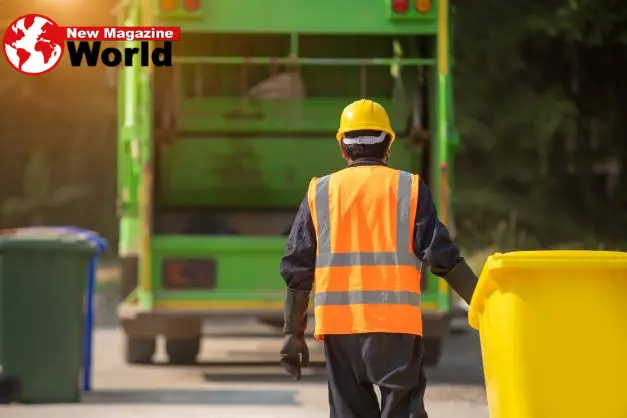Exploring Waste Management Careers: A Path to a Sustainable Future

Introduction to Waste Management Careers
Waste management careers are becoming increasingly important as societies strive for sustainability and environmental protection. This field offers diverse opportunities for individuals passionate about making a positive impact on the environment. From waste collection and recycling to policy development and environmental education, waste management careers encompass a wide range of roles that contribute to reducing waste and promoting sustainable practices.
The Importance of Waste Management
Waste management is critical in addressing environmental challenges such as pollution, resource depletion, and climate change. Effective waste management systems ensure that waste is collected, processed, and disposed of in ways that minimize environmental impact. Careers in waste management play a vital role in maintaining public health, conserving natural resources, and reducing greenhouse gas emissions. By pursuing a career in this field, individuals can actively contribute to building a cleaner and more sustainable world.
Types of Waste Management Careers
1. Waste Collection and Transportation
Waste collection and transportation are foundational aspects of waste management. Professionals in this area are responsible for collecting waste from residential, commercial, and industrial sources and transporting it to disposal or recycling facilities. Careers in this sector include waste collection drivers, route managers, and logistics coordinators. These roles require a strong understanding of waste handling protocols, safety procedures, and efficient route planning.
2. Recycling and Materials Recovery
Recycling and materials recovery focus on diverting waste from landfills by converting it into reusable materials. Careers in this field involve sorting, processing, and marketing recyclable materials. Job roles include recycling coordinators, materials recovery facility (MRF) operators, and recycling plant managers. These professionals work to increase recycling rates, reduce contamination, and educate the public about recycling best practices.
3. Hazardous Waste Management
Hazardous waste management deals with the safe handling, treatment, and disposal of hazardous materials that pose risks to human health and the environment. Careers in this area require specialized knowledge of hazardous waste regulations, treatment technologies, and emergency response procedures. Job titles include hazardous waste technicians, environmental health and safety specialists, and hazardous materials (HAZMAT) handlers. These professionals ensure that hazardous waste is managed in compliance with legal requirements and safety standards.
4. Waste Treatment and Disposal
Waste treatment and disposal involve processes such as incineration, composting, and landfilling to manage waste that cannot be recycled. Careers in this sector include landfill managers, incinerator operators, and composting facility supervisors. These roles require expertise in waste treatment technologies, environmental monitoring, and regulatory compliance. Professionals in this field work to minimize the environmental impact of waste disposal and optimize the efficiency of treatment processes.
5. Environmental Education and Advocacy
Environmental education and advocacy play a crucial role in promoting sustainable waste management practices. Careers in this area focus on raising public awareness about waste reduction, recycling, and environmental conservation. Job roles include environmental educators, outreach coordinators, and sustainability consultants. These professionals develop educational programs, conduct workshops, and collaborate with communities to encourage responsible waste management behaviors.
6. Policy and Regulatory Development
Policy and regulatory development involve creating and implementing laws, regulations, and policies related to waste management. Careers in this field include environmental policy analysts, regulatory compliance officers, and legislative advisors. These professionals work with government agencies, non-profit organizations, and industry stakeholders to develop strategies that promote sustainable waste management practices and ensure compliance with environmental regulations.
Skills and Qualifications for Waste Management Careers
Technical Skills
Technical skills are essential for many waste management careers. These include knowledge of waste handling protocols, recycling processes, hazardous waste treatment, and waste disposal technologies. Professionals in this field must stay updated on the latest advancements in waste management techniques and regulatory requirements.
Environmental Science and Engineering
A background in environmental science or engineering is valuable for many waste management roles. This knowledge helps professionals understand the environmental impact of waste and develop effective waste management strategies. Environmental engineers, for example, design systems for waste treatment and disposal that minimize environmental harm.
Regulatory Knowledge
Understanding waste management regulations is crucial for compliance and effective waste handling. Professionals in this field must be familiar with local, national, and international waste management laws and standards. This knowledge ensures that waste is managed in accordance with legal requirements and environmental best practices.
Communication and Education
Strong communication skills are important for roles in environmental education and advocacy. These professionals must be able to convey complex information about waste management to diverse audiences, including the public, policymakers, and industry stakeholders. Effective communication helps raise awareness and promote positive behavior changes related to waste management.
Project Management
Project management skills are valuable for coordinating waste management programs and initiatives. Professionals in this field must be able to plan, implement, and evaluate waste management projects. This involves budgeting, scheduling, resource allocation, and stakeholder engagement.
Career Pathways and Opportunities
Entry-Level Positions
Entry-level positions in waste management often include roles such as waste collection drivers, recycling sorters, and hazardous waste technicians. These positions provide valuable hands-on experience and serve as a stepping stone to more advanced roles in the field.
Advanced and Specialized Roles
With experience and additional education, professionals can advance to specialized roles such as environmental engineers, waste treatment facility managers, and regulatory compliance officers. Advanced positions often require a higher level of technical expertise and leadership skills.
Opportunities for Growth and Advancement
The waste management field offers numerous opportunities for career growth and advancement. Professionals can pursue certifications, advanced degrees, and continuing education to enhance their skills and qualifications. Leadership roles, such as waste management directors and sustainability officers, are available for those with extensive experience and a strong commitment to environmental stewardship.
Conclusion: The Future of Waste Management Careers
Waste management careers are essential for addressing the environmental challenges of today and tomorrow. As societies continue to prioritize sustainability, the demand for skilled waste management professionals will grow. By pursuing a career in this field, individuals can make a meaningful contribution to protecting the environment, conserving resources, and promoting sustainable practices. Whether through waste collection, recycling, hazardous waste management, or environmental education, waste management careers offer a rewarding and impactful path to a sustainable future.





